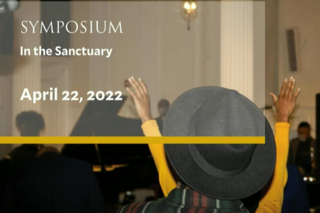The Reverend Rylan Andre Harris is a native of Philadelphia whose musicial and ministerial journey began at the age of four, when he was introduced to the piano. As he grew older and his technique and skills sharpened, he was afforded the chance to open and perform on stage with some of the world’s most renowned artists: Apollo’s Ray Chew & the Crew, Melba Moore, Bishop Hezekiah Walker, Elbernita “Twinkie” Clark, Chrystal Rucker, Kierra Sheard, Brian Courtney Wilson, Darwin Hobbs, Lisa Page Brooks, and Jekalyn Carr, among others
Rev. Harris did his undergraduate studies at the historic Hampton University in Hampton, Virginia, where he served as student director of Hampton Choirs and enjoyed leading and singing with every ensemble, including a chapel choir formed under his direction. At Hampton, he was afforded opportunities such as the humble honor of playing organ for commencement during his freshman year — just feet away from the 44th President of the United States of America, President Barack H. Obama!
A sought-after preacher, worship leader, singer, musician, and speaker, Rev. Harris was called to the Gospel Ministry of Jesus Christ in 2011, preaching his first sermon on April 4, 2012, on the campus of Hampton University. After much prayer, study, and observation, his father formally licensed him in 2015, which was followed by his official ordination in 2021.
He released his first single, “In Spite of Me,” which was followed by his debut LIVE Recording in July 2017. His group GLORY was officially formed in the same year and together in November 2019, they released their freshman project entitled “Hide Me Behind the Cross: LIVE In Philadelphia.” Rev. Harris currently serves as minister of worship & arts at Ray of Hope Christian Church in Decatur, GA under the pastorate of the Rev. Dr. Cynthia L. Hale. A proud and active member of Phi Mu Alpha Sinfonia Fraternity of America, Inc., and Alpha Phi Alpha Fraternity, Inc., he is currently completing a master of religious leadership degree at Emory University, Candler School of Theology, with a concentration in worship and music, after which he will look to pursue the Th.M. and Doctor of Philosophy degrees.
Above all else, Rev. Harris is a proud advocate for the preservation of the Black Church, its sound and its music, its history, its defining role and relevance in society on all levels, and its necessary sustainability for the generations not yet born.

